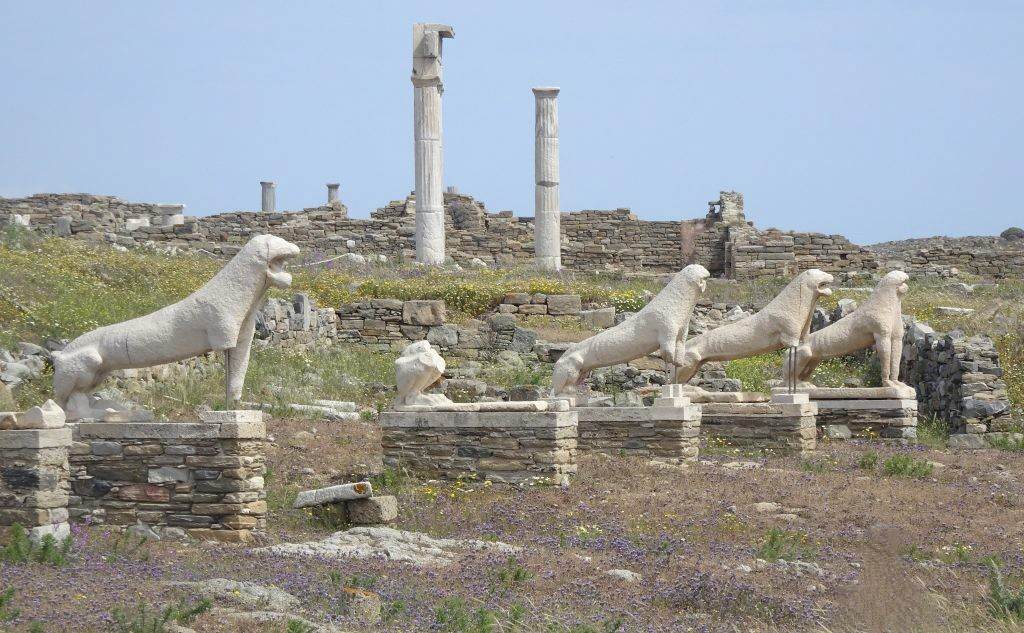The Culture and Food of Greece
If you’re interested in the combination of Greece, culture, and food, you’ve come to the right place! There’s even more to Greece than beautiful beaches. There is also an easy-going, friendly, fun, and lively way of life. Read on for a guide to Greek culture and food by a cultural anthropologist obsessed with Greece!
What is Greek Culture?
Greek culture is an integral part of the Mediterranean civilization. It includes a deep collection of wide-ranging customs, expressive festivals, and geographically diverse local traditions, together with philosophy-infused societal practices.
Famous for its traditional music embodied by the bouzouki, Greek culture is also known for its folk dances such as Sirtaki and vibrant modern dance forms.

The profound spirituality of Greece shines through in its enduring religious customs, especially the significant rituals of the Greek Orthodox Church including pilgrimages, Holy Week, and Apokries.

The profound spirituality of Greece shines through in its enduring religious customs, especially the significant rituals of the Greek Orthodox Church including pilgrimages, Holy Week, and Apokries.
More about Greek Religious Traditions:
- Apokries
- Christmas in Greece
- Greek Christmas Traditions
- Greek Easter
- What to Wear to Greek Easter
- Greek Independence Day: What to Do and See
The country’s deep sense of hospitality, known as ‘philoxenia’, is an important societal value that is practiced every day by Greek people.
A truly deep and rich mythology and history is obvious in Greece. Gods, Goddesses, minotaur, and witches, Ancient Greek mythology has it all.
But it’s not just mythology that the ancient Greeks gave us. Greece’s ancient history is epitomized by the legendary Olympiad. The modern Olympic Games show the lasting influence of ancient Greece on today’s global sporting culture.

Greek language, literature, and philosophical discourse, dating back to great thinkers like Homer and Plato, further stamp Greece’s intellectual stature in world history.
Greek drama, both ancient tragedies and comedies, signifies the lasting Greek contribution to world theatre – Greece invented theater after all.
I also love Greece’s material culture – its magnificent architecture, sculpture, and arts.

The iconic Parthenon in Athens, the Doric temple of Poseidon at Cape Sounion, the Minoan palace of Knossos in Crete, and the Byzantine monasteries of Meteora are living testaments to the timeless Greek architectural grandeur.
And although not on the same scale, the white sugar cube houses and blue-domed churches of the Greek islands are quintessentially Greek as well.
Greek sculpture is another vital aspect that has influenced global art, with famous examples including the Venus de Milo and The Discobolus of Myron, and the Cycladic monumental sculpture movement that includes the Kouros of Naxos.

Greek paintings include the incredible frescoes in Minoan palaces, such as the “Prince of the Lilies” at Knossos, or vibrant vase art like Exekias’s “Achilles and Ajax Playing a Game”.
Street art has become an everyday form of this enduring artistic tradition.
More about Street Art:
- Street Art in Athens
- The Best Athens Street Artists
Last, but hardly least, Greece’s culinary tradition, stemming from age-old recipes, forms a crucial part of Greek culture, with unique delicacies like Moussaka, Tzatziki, and Gyros.
The world’s first souvlaki-making equipment was found in ancient Mycenae and is 5000 years old!
Greek cultural experiences for travelers
- Start by experiencing a traditional Greek festival, a social event filled with music, dance, and gastronomic feasts.
- Then, explore its history by visiting iconic archaeological sites such as the Athens Acropolis or Delphi.
- Next, enjoy a Greek theatre performance, an art form that originated in ancient Greece.
- One cultural experience that you simply mustn’t miss involves the principle of ‘philoxenia,’ the art of hospitality. It’s more than just an act—it’s a fundamental characteristic of Greek culture.
So, whether you’re dining in a tiny taverna or being welcomed into a Greek home, be prepared to be enveloped in a world where generosity knows no bounds.
There are lots of ways in Greece you can dine with the locals. The easiest is to book a home dining experience with the wonderful EatWith company. You can choose from dining with a family in their garden or a seafood dinner looking out at wonderful panoramic views.
5. Finally, try attending a Greek cooking class, a mouth-watering journey into Greece’s culinary heritage.
Each of these unique experiences offers a genuine insight into Greek culture.
So there you have, the bare bones of Greek culture. But what about the food?
Greek Food
Greek food is surely one of life’s great pleasures. Food in Greece is much more than a means of sustenance; it’s an integral part of social dynamics.

Communal feasting on holidays, small social gatherings or even everyday meals is customary.
It’s typical to see long tables filled with Greek families and friends laughing, sharing stories, and enjoying a variety of dishes.
While breakfast and lunch are light affairs, the evening meal is a two-stage delight in urban areas. Lunch is a bigger deal in rural areas and a lighter evening meal among farming communities is more common.

Greek Food and Food Culture
Discover our delicious food and food culture articles so that you’ll know what to eat and drink, and where to find the best immersive culinary experiences in Greece.
Culinary Traditions and Rituals
Greek cuisine is deeply rooted in tradition, with recipes passing from generation to generation. Foods and dishes often have folkloric significance and are integral to rites and rituals.
A well-known example is the Tsiknopempti, also known as ‘Smoky Thursday’, when Greeks feast on grilled meat before the fasting period of Lent begins.
The Mediterranean Diet
Acclaimed worldwide for its health benefits, the Mediterranean diet is Greek food culture.
It depends heavily on fresh fruits, vegetables, fish, grains, and olive oil, fostering long-term health and well-being benefits.

The Cretan Diet, in particular, stands as one of the healthiest and most delicious representations of this universally beneficial diet.
3 ways in which Greek cuisine stands out from the Mediterranean Diet of other countries
- Aromatic herbs: Greek food uses comparatively fewer herbs and spices, giving simplicity and robustness to the fresh, seasonal ingredients used.
- Byzantine and Ottoman influences: Greek Greece’s historical interactions with the Ottoman and Byzantine Empires have left an impact on its cuisine. Dishes like moussaka and pastitsio have roots in these historical influences, creating a culinary blend that is distinctively Greek.
- Unique pastries and sweets: Greek pastries and desserts, such as baklava, kataifi, and loukoumades, showcase a sweet tooth unique to Greek culture. The use of honey, nuts, and phyllo dough is characteristic of Greek sweet treats.
Regional Specialties
How Greeks appreciate their regional specialties also signifies the importance of food in their culture.
Each region boasts its own unique dishes, using locally sourced seasonally available ingredients and age-old methods of preparation.

From the succulent Souvlaki of Thessaloniki to the creamy Moussaka of Athens, each dish tells a story about its place of origin.
The main ingredients used in traditional Greek cooking
If you’re thinking of trying your hand at some authentic Greek cooking at home, there are a few star ingredients that you need to know about.
The richness of Greek cuisine lies in these wholesome, flavor-packed components that are a delight for every palate.
Olives and Olive Oil
Without a doubt, olives and olive oil are fundamental to Greek cooking and of course, to the Mediterranean diet in general.
Used in practically everything from salads to dips, and seafood to stews, Greek olive oil has a remarkable depth of flavor unlike any other.
Besides, it’s rich in monounsaturated fats that give Greek food its heart-healthy reputation.
Feta Cheese
Named after the process of slicing it off a rectangular block, Feta cheese lends a salty zing to countless Greek dishes.

Made from sheep’s or goat’s milk, this crumbly Greek cheese is deliciously tangy and bound to make dishes like spanakopita and horiatiki sing with flavor.
Honey
Greek honey is celebrated worldwide for its superior quality.

Produced from the nectar of a dense variety of flowers like thyme, heather, and fir, Greek honey is one of the best ways to sweeten desserts like baklava, give a tasty glaze to baked feta, or add a hint of sweetness to Greek yogurt.
I love the honey on Tinos Island, but I also love that it’s still made on Santorini, despite the overtourism of the island.
Fresh Seafood
Given the country’s extensive coastline, fresh seafood is a prominent part of Greek cuisine.

From tender calamari and glistening sardines to succulent mussels and flavorful octopus, the Greek’s way of simplicity in their seafood dishes highlights the natural character of the sea.
When it comes to cooking seafood, Greeks believe in only enhancing the natural flavors already present.
That’s why you’ll most often find seafood dishes simply dressed with bold, bright condiments such as lemon, olive oil, and fresh herbs like dill and parsley.
During your trip, don’t pass up the chance to try a choriatiki, a traditional Greek salad often served with grilled squid or octopus on top.
The Indispensable Bread
No Greek meal is complete without bread. It’s hard to overstate the importance of bread in Greece. The word for food in Greek, “sito“, actually translates to ‘bread’.

There are many types of Greek bread, from the crispy, sesame-covered koulouri to the soft and fluffy pita.
Bread is more than a side dish – it often aids in sopping up sauces and is used as scoops for dips like Tzatziki and Taramosalata.
Herbs and Spices
Herbs and spices play an important role in Greek cooking, adding a vibrant touch to everything from salads to soups to grilled meats.
Expect a hearty dose of oregano, rosemary, mint, and thyme in your meals. The vibrant hue of Greek food often comes from paprika, while nutmeg adds a layer of warmth and complexity.
Another favorite is mastiha, a resin from the mastic tree, which adds a sweet and slightly piney flavor to sweets and liqueurs.
Other Mainstays in the Greek diet
Yogurt, lamb, and legumes also feature heavily in traditional dishes, and fried cheese and cheese pie are beloved staples.
Whether it’s the famous Greek yogurt, a creamy, tangy base for many Greek desserts or sauces, the scrumptious kleftiko lamb slow-cooked to absolute perfection, or the simple yet delightful concoction of legumes in varieties of soups or fava, you’re in for a brilliant food adventure when you visit Greece!







